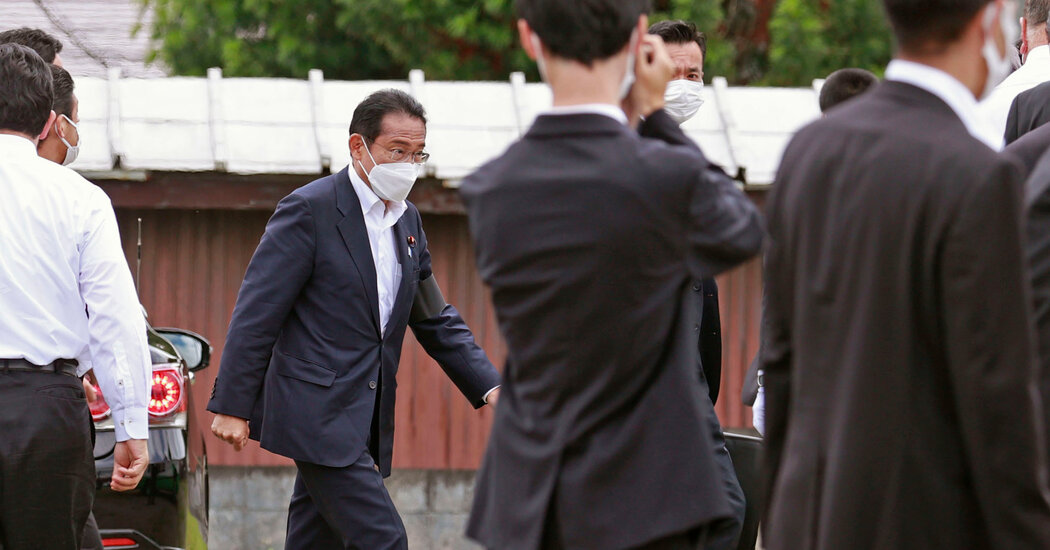TOKYO – Candidates for Saturday’s parliamentary election in Japan rushed from meeting to meeting, hoping to appeal to voters during the closing hours of the campaign period, just a day after the assassination of Shinzo Abe, the longest-serving prime minister in Japan. Japan, the campaign caused fear. would be disrupted.
Mr Abe was gunned down Friday while campaigning for a Senate candidate in the election.
But on Saturday it seemed political business as usual. White vans carrying large photos of politicians and their names blaring from loudspeakers drove through the streets. Candidates clashed with supporters and posed for selfies.
From the backs of roving vans, from street corners and train station entrances, candidates from the country’s many political parties tried to tell voters their differing visions of Japan’s future. They campaigned as if they agreed on at least one thing: the violence of the day before must not undermine the country’s elections.
In the hours immediately following Mr Abe’s shooting in the city of Nara, it seemed that the campaign period — which was to end Saturday night — could end early as the country grappled with the death of one of its most powerful and influential political figures.
But on Friday night, Prime Minister Fumio Kishida, in a short eulogy for Mr Abe, announced his intention to continue campaigning on behalf of his Liberal Democratic Party, saying otherwise it would be tantamount to surrendering to violence.
He traveled to two prefectures on Saturday amid heightened security to support candidates for the party. While addressing Mr Abe’s death in comments to voters, he has largely focused on electoral issues, such as how to revive Japan’s economy and deal with rising prices.
For opposition parties, the political analysis of campaigning after the assassination was more complex. As a critical figure in the Liberal Democrat party, which is Conservative, Mr Abe had often served as an advocate for Liberal politicians.
In Tokyo’s trendy Shibuya neighborhood, Taku Yamazoe, 37, a member of the Japanese Communist Party seeking a second term, convicted the murder of Mr. abe.
“We will not tolerate the silencing of free speech,” he told supporters. “Violence is not democracy.”
But supporters of opposition candidates said they feared the shooting would spark a wave of sympathy votes for the ruling party, worsening their already small election chances.
In Tokyo’s fashionable Ginza neighborhood, hundreds of people gathered to cheer for Akiko Ikuina, a former pop idol running for the Liberal Democratic Party.
It was her last election stop and Mr. Abe was scheduled to attend.
On the roof of a van, Ms Ikuina, 54, fought back tears as she urged her supporters to vote Sunday to honor the legacy of the former prime minister. “Those of us who remain,” she said, “should help make Abe’s vision a reality for our country.”

